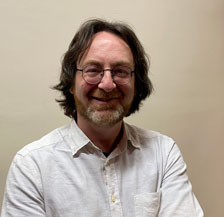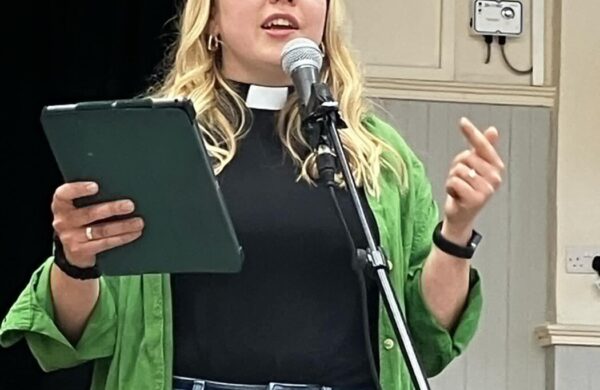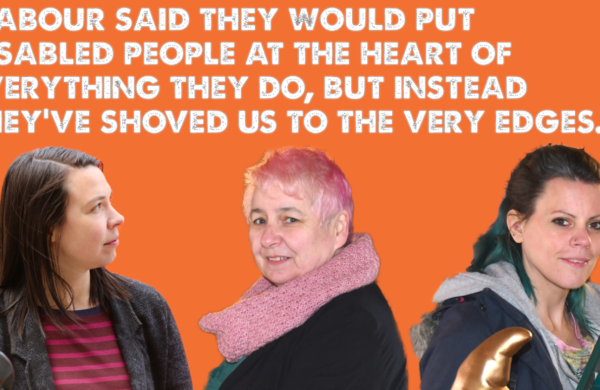New wine, new wineskins: theological reflection on ‘building back better’
On 3 June, we gathered theologians, writers and ministers to reflect together on what the church's role should be in 'building back better' after the pandemic.
Opening poem and prayer by Marie Pattison of Katherine House
Our ‘worship and theology collective’ had a fruitful discussion, and we hope some this thinking will influence how we work with churches in the coming months. Here are some brief notes and ideas from our discussions:
Trauma and dancing
- We talked about Shelly Rambo’s theology of trauma and the importance of not rushing from Good Friday to Easter Sunday, the importance of Holy Saturday – the need for a time to lament and acknowledge what has gone wrong before we build anew.
- We looked at the three principles of Liberation Theology:
- Solidarity – including grieving with people. There is a need for healing as well as prophetic voices.
- Mutual Aid – we cannot rely on the government. The phrase mutual aid has now become mainstream.
- Dancing – need to find new ways to celebrate life beyond the pain.
- It’s important not to be too positive about the pandemic as an opportunity for change, because so many people are losing loved ones – the pandemic is not a good thing.
- The prophets, e.g. Deutero Isaiah, wrote out of disaster and exile, woe and hope mingled together. We are in an exile moment. The prophetic imagination of Isaiah might help us – images of the lion and the lamb laying down together, etc.
- But the pandemic has magnified stress and anxiety that was already there. Some people have gone into survival mode. How do we connect with people who could not be further from ‘dancing’?
Voices and power
- Who do we look to to take the lead as we move forward? Children will be among the most traumatised by this pandemic. The climate movement is being led by young people – whose voices do we pay most attention to? We talked about the story of Jesus placing a child in the centre.
- In the story of the healing of the blind man (Mark 8), Jesus tells him not to go back to the village. Do not go back to the old way of life, we are going somewhere new now.
- It has been interesting to see how different churches have responded – some have stepped up, but others haven’t. Is there something the whole church across the UK, across denominations, could be saying? Could the Church as a whole be acting as the conscience of the nation and holding the government to account?
- Members talked about their denominations becoming internally obsessed about losing money and congregation members because of the pandemic, and wanting to make a power grab.
How can we encourage the Church to embrace this crisis by shutting up and listening to the people its not been listening to?
Judgement
- This is a crisis – a judgement on our society; it will take a long time to see what that means.
- Truth-telling is vital at this time. The church seems to be divided between those who want to speak out against the government, and those who criticise people speaking out.
- Fake news or good news? The prevailing narrative is not necessarily the truth. Challenge the churches to listen better and think about whose voices they amplify.
- Jesus gives the disciples the power to forgive sins and to retain them. How do we retain sins and say ‘I am still not OK with this?’
- We shouldn’t be frightened of judgement. We believe in a God who judges.
Fear, Othering and Connection
- Contrary to the stories of solidarity and connection, some members were concerned that we are becoming more fearful of one another and of the world outside.
- One member shared the story of their autistic granddaughter who overcame her fear of stepping outside the front door when her family drew a hopscotch game on the street, making the outside space safe, and she witnessed strangers (including adults) using the hopscotch, being aware of other people inhabiting the same space and being safe.
- We are not all in the same boat, but we are in the same storm. We shared this poem by Kathy Galloway:
Do not retreat into your private world,
That place of safety, sheltered from the storm,
Where you may tend your garden, seek your soul
And rest with loved ones where the fire burns warm.
To tend a garden is a precious thing,
But dearer still the one where all may roam,
The weeds of poison, poverty and war,
Demand your care, who call the earth your home.
To seek your soul it is a precious thing,
But you will never find it on your own,
Only among the clamour, threat and pain,
Of other people’s need will love be known.
To rest with loved ones is a precious thing,
But peace of mind exacts a higher cost,
Your children will not rest and play in quiet,
While they hear the crying of the lost.
Do not retreat into your private world,
There are more ways than firesides to keep warm;
There is no shelter from the rage of life,
So meet its eye, and dance within the storm.
Kathy Galloway (First published in Bread of Tomorrow, ed. Janet Morley, SPCK/Christian Aid, London 1992)



